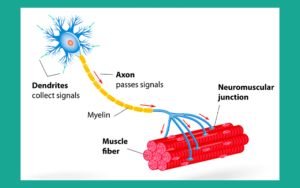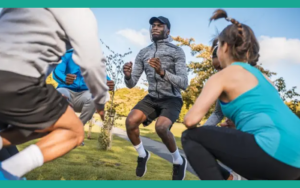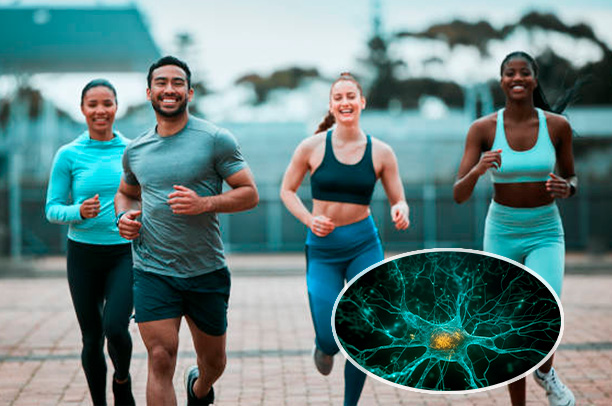We all know exercise is key to staying healthy. Its positive impact on muscles, bones, blood vessels, and the immune system is well documented. However, a recent study conducted by engineers at the Massachusetts Institute of Technology (MIT) reveals that its benefits go beyond the physical body, significantly influencing the development of neurons.
Myokines: The Biochemical Link Between Muscles and Neurons
During exercise, muscles release a mix of biochemical signals known as myokines. These substances, produced during muscle contraction, can influence the growth of nerve cells. In an experiment carried out by the MIT team, neurons exposed to myokines grew up to four times faster than those not in contact with these chemical signals.
Myokines not only promote the physical growth of neurons but also induce genetic changes. Researchers analyzed the RNA of treated neurons and found that certain genes related to growth, maturation, and neuronal functionality were more active. This demonstrates that exercise not only improves the quantity of neuronal connections but also their quality and ability to communicate with other cells.

The Impact of Physical Movement on Neural Development
The most surprising aspect of the study is that not only biochemical signals play a key role—neurons also respond to the physical stimuli associated with exercise. By mimicking muscle contraction and relaxation movements using mechanical forces, researchers stimulated neuronal growth just as effectively as with myokines.

This is particularly significant because it shows that exercise acts on neurons through multiple mechanisms: one biochemical, via signals generated by muscles, and another physical, through the mechanical forces exerted on nerves as they interact with muscles.
Advances in Regenerative Medicine
These findings could have a transformative impact on medicine. Professor Ritu Raman, the study’s lead author, emphasizes that the connection between muscles and nerves could be key to developing new regenerative therapies. For instance, stimulating muscles could promote nerve regeneration in individuals with traumatic injuries or neurodegenerative diseases like amyotrophic lateral sclerosis (ALS).
In 2023, the team had already achieved a significant breakthrough by restoring mobility in mice with traumatic muscle injuries. They implanted muscle tissue in the damaged area and repeatedly stimulated it with light to mimic exercise. Results showed that the grafted muscle not only helped restore motor function but also promoted the growth of nerves and blood vessels in the affected area.
Now, this new study delves deeper by focusing solely on muscle and nerve tissue, removing the influence of other cells and body factors. This allowed for clearer evidence that exercise has a direct effect on neuronal growth.
“Exercise as Medicine”
These findings reinforce the idea that exercise can be much more than a physical activity. According to Raman, this is the first step toward understanding and utilizing exercise as a form of medicine. The implications of this could transform how we treat nerve injuries, mobility disorders, and neurodegenerative diseases in the future.
The team plans to continue researching how targeted muscle stimulation can heal damaged nerves and restore mobility to those who have lost it. This innovative approach could revolutionize the way we view rehabilitation and regenerative medicine.
A Promising Future
Published in the journal Advanced Healthcare Materials, this study marks a milestone in understanding the relationship between muscles and nerves. Beyond its well-known physical benefits, exercise proves to be a powerful tool for promoting the health and regeneration of the nervous system.
Moving, exercising, and staying active is not only essential for strengthening the body but could also be the key to healing and rejuvenating our nervous system. This breakthrough brings us closer to a future where “exercise as medicine” becomes an accessible reality for all.


Somebody essentially lend a hand to make significantly posts I might state That is the very first time I frequented your web page and up to now I surprised with the research you made to create this particular put up amazing Excellent job
helloI like your writing very so much proportion we keep up a correspondence extra approximately your post on AOL I need an expert in this space to unravel my problem May be that is you Taking a look forward to see you